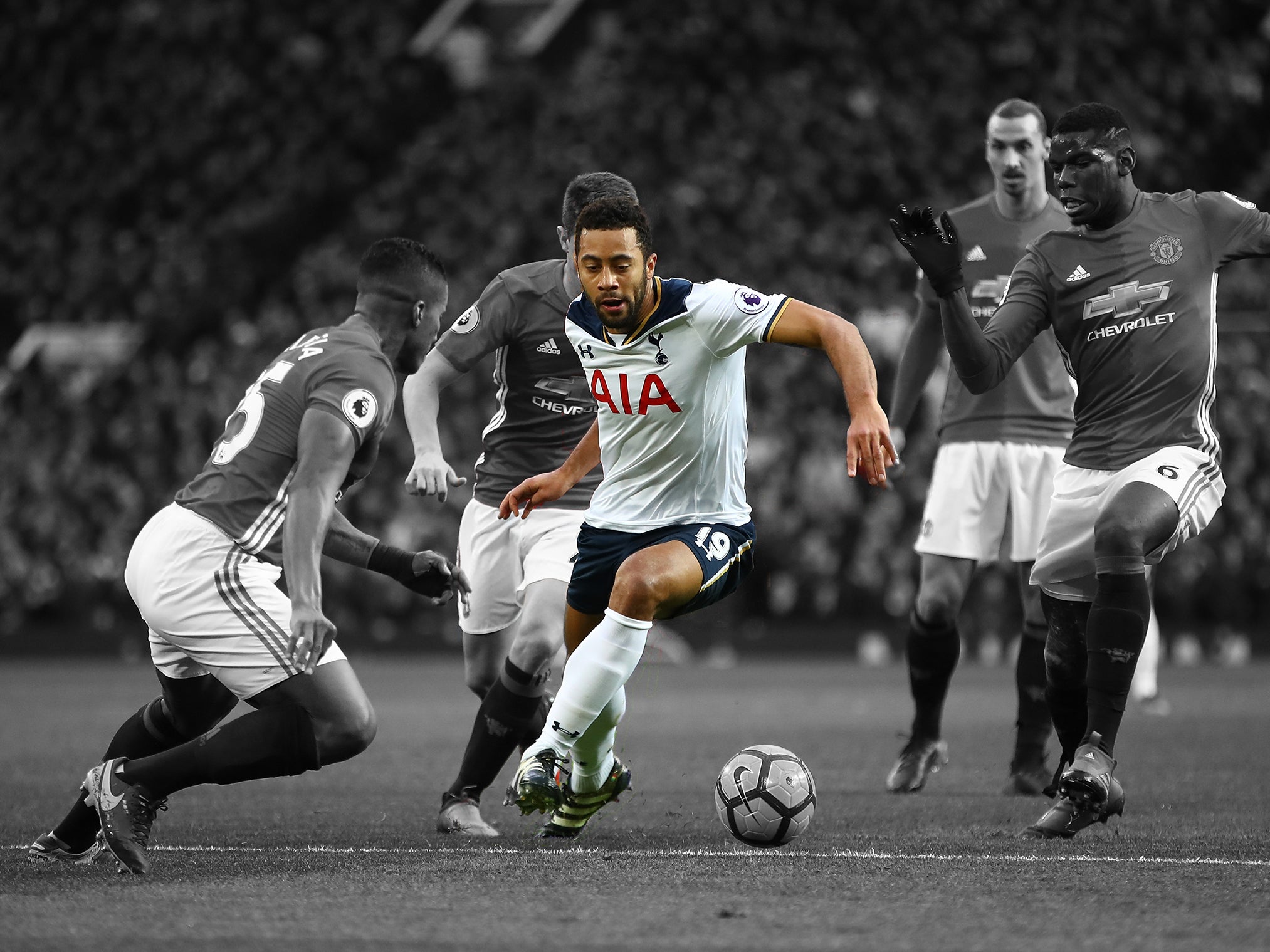Mousa Dembele should be celebrated as the Premier League’s most ordinary extraordinary player
Picture Dembele in action and the chances are that you do not think of him making tackles in his own box, or shooting down the other end of the field, but sailing serenely somewhere in between

Your support helps us to tell the story
From reproductive rights to climate change to Big Tech, The Independent is on the ground when the story is developing. Whether it's investigating the financials of Elon Musk's pro-Trump PAC or producing our latest documentary, 'The A Word', which shines a light on the American women fighting for reproductive rights, we know how important it is to parse out the facts from the messaging.
At such a critical moment in US history, we need reporters on the ground. Your donation allows us to keep sending journalists to speak to both sides of the story.
The Independent is trusted by Americans across the entire political spectrum. And unlike many other quality news outlets, we choose not to lock Americans out of our reporting and analysis with paywalls. We believe quality journalism should be available to everyone, paid for by those who can afford it.
Your support makes all the difference.Finding a label to accurately describe Mousa Dembele is curiously difficult, like opening your eyes and immediately attempting to recollect the more mundane details of a dream.
He is not a conventional central midfielder. He is not a playmaker, deep-lying or otherwise. He is hardly a defensive midfielder, or a destroyer. He does not play in the hole, or up front — not anymore, anyway — and he is never seen out wide. He is a box-to-box player, sure, but that description seems almost reductive for a man of his talents, when it is the nature of that 90 yard journey which makes him unique.
In another era, Dembele would be easy to categorise. His unrelenting instinct to drive forward with the ball, no matter his position on the pitch or the number of opponents surrounding him, belongs to a bygone age: when all those watching wore cloth caps and formations consisted of letters instead of numbers.
In a Premier League that increasingly prizes possession football and sideways passing, he is an anachronism.
In his seminal book, The Football Man, Arthur Hopcraft admiringly notes of Stanley Matthews that “thinking of him in action now there is hardly ever a set of goal posts in frame; Matthews always seemed a very long way away from goal, which deceived countless defenders when they thought there would be time for a second tackle if the first one missed.”
Dembele is the same. He is a completely different player, of course, but picture him in action and the chances are that you do not think of him making crunching tackles close to his own box, or taking shots down the other end of the pitch, but sailing serenely somewhere in between. Calmly transitioning defence into attack in one, never-ending stride, head bowed forward, a fallen heap of defenders in his wake.
Fittingly enough, there is a simple reason for his thrillingly simple approach.
“I always played on the street with two lamp posts that were like a basketball pitch and we could not shoot,” Dembele said in a 2012 interview. “You had to dribble and touch the ball on the posts to score: we never shot. I know now it's important to shoot and have the combination, not only to dribble but to shoot a lot as well.”
It is then another curiosity of Dembele’s career that it took until midway through his first season at Fulham, who he moved to from Dutch side AZ in 2010, for him to be moved out of his favoured centre-forward role, back into midfield. “He is not a finisher,” his then manager, Martin Jol, has since recounted. “I knew from my experience that if I left him up front, he could play amazing games but he would not score 15 or 20 goals.”
With his shortcomings in front of goal now alleviated by a new position, Dembele shone, soon moving to Tottenham for £15m. And after Mauricio Pochettino’s arrival in 2014 his game was elevated to an even higher level. With Dembele as their beating heart, utterly essential to Pochettino’s exhaustive high-press philosophy, Spurs have enjoyed their longest period of sustained success since the 1960s.
“Without Dembele, we do not exist,” Pochettino has freely admitted. He will be impossible to adequately replace.

His Tottenham team-mates were similarly effusive in their praise, with Dele Alli, Eric Dier, Danny Rose, Victor Wanyama and Harry Winks all remarking in separate interviews that Dembele, rather than Christian Eriksen or even Harry Kane, was the best player at the club. “He is a freak of nature,” added Dier. “Physically, he is a monster, but he has got ballerina feet.”
Still just 31, Dembele’s long struggle with a series of deliberating injuries has accelerated a cut-price move to Chinese Super League side Guangzhou R&F. His exit has prompted an outpouring of plaudits, the vast majority tinged with an understandable sadness for one of the most outstanding players of his generation, who won precisely nothing during the near decade he spent playing in England. “We always told him, ‘If we had taken you at 18 or 19, you would have become one of the best players in the world,’” Pochettino wrote ruefully in his 2017 book Brave New World.
Regardless, Dembele deserves to be celebrated, not commemorated. The professional’s professional, he leaves England not with a glittering trophy cabinet but a reputation as a truly unique midfielder in an era of uniformity, the most important player in one of Tottenham’s most successful teams. He will be greatly missed, and never truly replaced.
Join our commenting forum
Join thought-provoking conversations, follow other Independent readers and see their replies
Comments